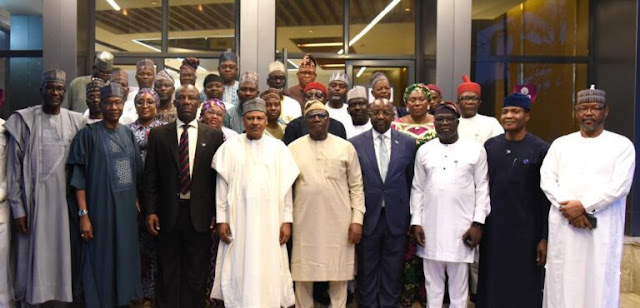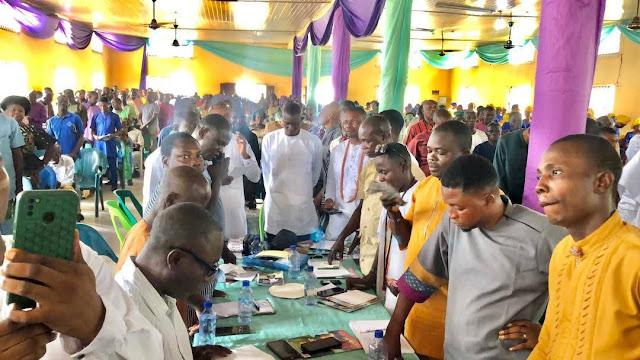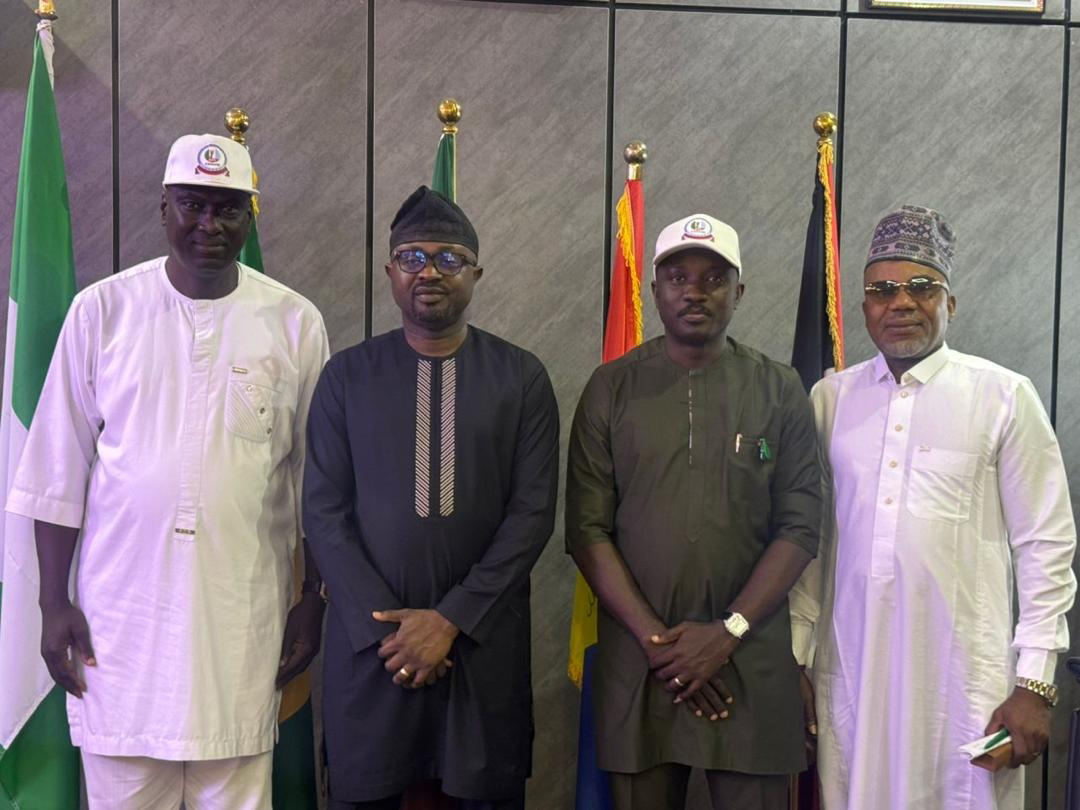The Minister of Information and National Orientation, Mohammed Idris, has emphasized that President Bola Ahmed Tinubu’s development agenda is driven by a commitment to Nigeria’s national interest rather than political considerations. Speaking at a recent press briefing in Abuja, Idris highlighted the administration’s focus on transformative policies aimed at addressing long-standing economic, social, and infrastructural challenges. The minister’s remarks come amid growing public discourse about the impact of Tinubu’s reforms, particularly the removal of the fuel subsidy and efforts to diversify the economy, which have sparked both praise and criticism across the country.
Idris’s statement underscores the administration’s narrative that its policies are designed to prioritize the collective good of Nigerians over partisan interests. As Nigeria grapples with economic hardship, insecurity, and infrastructure deficits, the minister’s message seeks to reassure citizens that the government’s actions are guided by a vision for long-term prosperity. This article explores the details of Idris’s remarks, the context of Tinubu’s development agenda, the challenges facing the administration, and the broader implications for Nigeria’s future.
Background: Nigeria’s Complex Challenges
Nigeria, Africa’s most populous nation and largest economy, faces a myriad of challenges that have persisted for decades. Economic stagnation, high unemployment, widespread poverty, and insecurity have hindered the country’s ability to achieve its full potential. The nation’s heavy reliance on oil revenue, coupled with systemic issues such as corruption and inadequate infrastructure, has left millions of Nigerians struggling to access basic services like electricity, healthcare, and education.
Since assuming office on May 29, 2023, President Tinubu has introduced bold reforms aimed at addressing these challenges. His administration’s flagship policies, including the removal of the fuel subsidy and the unification of the foreign exchange rate, have been presented as critical steps toward economic stability and growth. However, these measures have triggered significant economic disruptions, including soaring inflation, rising fuel prices, and increased living costs, leading to widespread public discontent.
The Tinubu administration inherited a nation grappling with a fiscal crisis, with the fuel subsidy alone costing the government an estimated $10 billion annually. The subsidy, while intended to keep fuel affordable, was widely criticized for being unsustainable and riddled with corruption. Its removal, though necessary, has placed a heavy burden on ordinary Nigerians, particularly low-income households and small businesses. Against this backdrop, Idris’s assertion that Tinubu’s agenda is driven by national interest rather than politics aims to reframe the narrative around these reforms, emphasizing their long-term benefits over immediate hardships.
Idris’s Remarks: A Focus on National Interest
During the press briefing, Mohammed Idris outlined the key pillars of Tinubu’s development agenda, which include economic diversification, infrastructure development, job creation, and improved security. He stressed that these priorities are not motivated by political expediency but by a genuine desire to address Nigeria’s systemic challenges and improve the lives of its citizens.
“President Tinubu’s vision is clear: to build a Nigeria that works for all its citizens, regardless of tribe, religion, or political affiliation,” Idris said. “Every decision, every policy, is driven by the need to secure the future of our nation and ensure that we leave a legacy of progress and prosperity for generations to come.”
Idris highlighted several initiatives as evidence of the administration’s commitment to national interest. He pointed to the Renewed Hope Infrastructure Development Fund, a multi-billion-naira initiative aimed at addressing Nigeria’s infrastructure deficit. The fund supports projects such as the Lagos-Calabar Coastal Highway, the Sokoto-Badagry Superhighway, and the rehabilitation of major roads and bridges across the country. These projects, Idris argued, are designed to boost economic activity, improve connectivity, and create jobs, particularly for young Nigerians.
The minister also emphasized the administration’s efforts to diversify the economy away from oil. For decades, Nigeria’s over-reliance on crude oil exports has made it vulnerable to global price fluctuations, limiting its ability to invest in critical sectors like agriculture, manufacturing, and technology. Tinubu’s agenda includes policies to promote agricultural productivity, support small and medium-sized enterprises (SMEs), and develop the digital economy. Idris cited the establishment of the Ministry of Digital Economy and the expansion of agricultural financing programs as key steps toward achieving these goals.
On security, Idris acknowledged the persistent challenges of banditry, kidnapping, and terrorism, particularly in the northern and southeastern regions. He noted that the administration has prioritized strengthening security agencies, improving intelligence gathering, and fostering community-based solutions to address these issues. “Security is a prerequisite for development,” Idris said. “The president is committed to ensuring that every Nigerian can live and work in peace.”
The Fuel Subsidy Removal: A Controversial but Necessary Reform
One of the most contentious aspects of Tinubu’s agenda is the removal of the fuel subsidy, announced shortly after his inauguration. The policy led to an immediate tripling of fuel prices, with petrol rising from approximately ₦200 per liter to over ₦600 in many parts of the country. This surge triggered a sharp increase in the cost of transportation, food, and other essentials, exacerbating the cost-of-living crisis.
Idris defended the subsidy removal as a necessary sacrifice for Nigeria’s long-term economic health. “The fuel subsidy was bleeding our economy dry,” he said. “It was unsustainable and enriched a few at the expense of the many. By removing it, we are freeing up resources to invest in critical areas like education, healthcare, and infrastructure.”
The minister acknowledged the immediate hardships caused by the policy but emphasized that the government has introduced measures to mitigate its impact. These include cash transfer programs for vulnerable households, wage increases for civil servants, and subsidies for public transportation. However, the implementation of these interventions has been slow and uneven, leading to criticism from civil society groups and labor unions.
The unification of the foreign exchange rate, another key reform, has also had significant consequences. By allowing the naira to float, the government aimed to attract foreign investment and stabilize the economy. However, the policy has led to a sharp devaluation of the currency, with the naira losing over 50% of its value against the dollar since 2023. This has driven up the cost of imported goods, further fueling inflation, which reached a record high of over 30% in 2024, according to the National Bureau of Statistics.
Infrastructure Development: A Cornerstone of Tinubu’s Agenda
Infrastructure development is a central pillar of Tinubu’s vision for Nigeria. The country’s infrastructure deficit, estimated to require over $100 billion in investment, has long been a barrier to economic growth. Poor roads, unreliable electricity, and inadequate healthcare facilities have hindered productivity and deterred foreign investment.
The Renewed Hope Infrastructure Development Fund, launched in 2024, is one of the administration’s flagship initiatives to address this challenge. The fund aims to mobilize public and private capital to finance major projects across the country. Key projects include:
Lagos-Calabar Coastal Highway: A 700-kilometer road connecting Lagos to Calabar, designed to boost trade, tourism, and connectivity in the South-South and Southeast regions.
Sokoto-Badagry Superhighway: A major infrastructure project aimed at improving transportation and economic activity in the Northwest and Southwest.
Railway Modernization: Upgrades to Nigeria’s rail network, including the completion of the Lagos-Ibadan and Abuja-Kaduna rail lines, to enhance the movement of goods and people.
Idris emphasized that these projects are not politically motivated but are designed to benefit all regions of Nigeria. “The president is committed to ensuring that no part of the country is left behind,” he said. “These projects are about creating opportunities for all Nigerians, from the North to the South, from the East to the West.”
Economic Diversification: Reducing Oil Dependency
Nigeria’s over-reliance on oil has been a longstanding challenge, leaving the economy vulnerable to global market fluctuations. Tinubu’s agenda prioritizes diversification through investments in agriculture, manufacturing, and the digital economy. Idris highlighted several initiatives in this area, including:
Agricultural Financing Programs: The government has expanded access to credit for farmers through programs like the Anchor Borrowers’ Programme, aimed at boosting food production and reducing imports.
Support for SMEs: The administration has introduced tax incentives and grants to support small businesses, which employ millions of Nigerians and drive economic growth.
Digital Economy: The creation of the Ministry of Digital Economy reflects the government’s focus on leveraging technology to create jobs and attract investment. Initiatives like the National Broadband Plan aim to expand internet access, particularly in rural areas.
These efforts, Idris argued, are critical to building a resilient economy that can withstand external shocks and provide opportunities for Nigeria’s growing population.
Security: A Prerequisite for Development
Insecurity remains one of Nigeria’s most pressing challenges, with banditry, kidnapping, and terrorism disrupting economic activities and displacing communities. In the Southeast, separatist agitations by groups like the Indigenous People of Biafra (IPOB) have led to violence and economic disruptions, while the North faces ongoing threats from Boko Haram and bandit groups.
Idris acknowledged these challenges but emphasized the administration’s commitment to addressing them. The government has increased funding for security agencies, deployed advanced technology for intelligence gathering, and promoted community-based approaches to conflict resolution. “The president understands that without security, there can be no development,” Idris said. “We are working tirelessly to ensure that every Nigerian feels safe.”
Public Reaction: Support, Skepticism, and Calls for Action
Idris’s remarks have elicited mixed reactions from Nigerians. Supporters of the administration argue that Tinubu’s reforms, though painful, are necessary to address decades of mismanagement. They point to the infrastructure projects and economic diversification efforts as evidence of a forward-thinking agenda. However, critics, including labor unions and civil society groups, contend that the government has not done enough to address the immediate hardships caused by its policies.
The Nigerian Labour Congress (NLC) and Trade Union Congress (TUC) have organized protests to demand relief measures, such as the reversal of the fuel subsidy removal or more robust social safety nets. Many Nigerians, particularly in urban areas, are struggling to cope with rising costs, with food inflation alone exceeding 40% in some regions. Small business owners, who rely on affordable fuel and electricity, have been particularly vocal about their challenges.
In rural areas, where access to government interventions is limited, frustration is also high. Farmers and traders have called for more direct support, such as subsidies for agricultural inputs and improved access to markets. The Southeast, in particular, has seen growing discontent due to the combined effects of economic hardship and insecurity.
The Role of Communication in Governance
As the Minister of Information and National Orientation, Idris plays a critical role in shaping public perception of the administration’s policies. His emphasis on national interest reflects an effort to build trust and foster unity among Nigerians. Effective communication is essential in a country as diverse as Nigeria, where ethnic, religious, and regional differences can complicate governance.
Idris’s ministry has launched campaigns to educate the public about the government’s reforms and their expected benefits. These efforts include town hall meetings, media engagements, and digital campaigns aimed at reaching younger audiences. By framing Tinubu’s agenda as one driven by national interest, Idris seeks to counter narratives that portray the administration as politically motivated or disconnected from the people’s needs.
The Path Forward: Balancing Reform and Relief
For Tinubu’s development agenda to succeed, the administration must address the immediate needs of Nigerians while pursuing its long-term goals. Several strategies could help achieve this balance:
Enhanced Social Safety Nets: Expanding cash transfers, wage support, and subsidies for essential goods can help cushion the impact of economic reforms. Ensuring that these interventions reach vulnerable populations is critical to maintaining public support.
Accelerated Infrastructure Delivery: Fast-tracking infrastructure projects can create jobs and stimulate economic activity. Transparent procurement processes and timely completion of projects will enhance public confidence.
Security Reforms: Strengthening security agencies, improving intelligence, and fostering dialogue with affected communities can help address insecurity and create a stable environment for development.
Public Engagement: The government should prioritize transparent communication and inclusive policymaking to build trust. Regular updates on the progress of reforms can help manage public expectations.
Economic Diversification: Continued investment in agriculture, manufacturing, and technology will reduce Nigeria’s reliance on oil and create sustainable growth opportunities.
Conclusion
Mohammed Idris’s assertion that President Tinubu’s development agenda is driven by national interest reflects the administration’s commitment to addressing Nigeria’s systemic challenges. From economic diversification to infrastructure development and security, the government’s policies aim to lay the foundation for long-term prosperity. However, the immediate hardships caused by reforms like the fuel subsidy removal have tested the patience of Nigerians, particularly those struggling with rising costs and insecurity.
For the administration to succeed, it must balance its ambitious reforms with tangible relief for citizens. By prioritizing transparency, inclusivity, and effective communication, the government can build trust and rally public support for its vision. As Nigeria navigates this critical juncture, the promise of a brighter future depends on the collective efforts of its leaders and citizens to work toward a shared goal of progress and prosperity.






